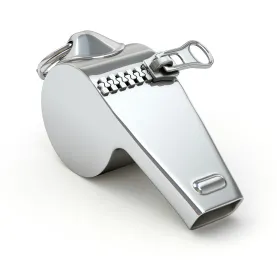The Securities and Exchange Commission’s Office of the Whistleblower recently released its sixth Annual Report on the Dodd-Frank Whistleblower Program to Congress, which details information on the SEC’s activities and bounty payouts. The report covers the SEC’s 2016 fiscal year, which ran from October 1, 2015 to September 30, 2016.
In its report, the SEC highlights that since the inception of its Dodd-Frank whistleblower program in 2011, the Commission has paid more than $111 million in awards to a total of 34 whistleblowers, with more than $57 million paid in 2016 alone. Due to the assistance from the 34 whistleblowers, the SEC ordered $584 million in financial sanctions, including more than $346 million in disgorgement of unlawful gains and interest. The SEC also emphasized that increased public awareness of the whistleblower program resulted in “a consistent increase in the number of whistleblower tips received.” In addition, the Commission pointed to several important actions it took in Fiscal Year 2016 aimed at protecting whistleblowers from unlawful retaliation or employer attempts to interfere with the ability to report wrongdoing.
Thirteen Awards Totaling More than $57 Million Paid in FY2016
The SEC paid more than $57 million to 13 whistleblowers during Fiscal Year 2016. In fact, six of the then largest whistleblower awards were awarded during Fiscal Year 2016. Although the over $30 million award issued by the SEC in September 2014 remains the highest award issued under the program, the second-highest award of over $22 million was made during Fiscal Year 2016 to a company insider that helped thwart a well-hidden fraud at the company where the whistleblower worked. The remaining awards ranged from $275,000 to more than $17 million. This includes an award of over $3.5 million to a company employee whose tip, along with supporting documentation, significantly contributed to an ongoing investigation originally opened in response to media reports. Additionally, the SEC awarded of over $700,000 to an industry expert whose detailed analysis led to a successful enforcement action against an outside company.
Similar to the previous annual reports, the SEC noted that “[t]here are commonalities among many of the tips or complaints that were submitted by these successful whistleblowers.” The Commission discussed that the information provided by award recipients provided specific documents that substantiated their allegations and identified particular individuals involved in the fraud. Further, the reported misconduct was relatively recent or ongoing at the time of reporting.
According to the SEC, almost 60 percent of the award recipients reported original information that caused the opening of an investigation, while the other 40 percent received awards due to their significant contribution to an existing investigation. Additionally, nearly 65 percent of award recipients were company insiders and 80 percent of these whistleblowers raised their concerns internally before reporting to the SEC.
Continued Increase in Whistleblower Tips
The number of whistleblower tips received by OWB has increased in each fiscal year since the program’s inception, with a 40 percent increase from Fiscal Year 2012 to Fiscal Year 2016. Since August 2011, the Commission has received 18,334 whistleblower tips, with over 4,200 tips received in Fiscal Year 2016 alone. The three most frequent types of complaints reported by whistleblowers were Corporate Disclosures and Financials (22 percent), Offering Fraud (15 percent), and Manipulation (11 percent).
During Fiscal Year 2016, OWB received tips from all over the United States, as well as internationally. The states that yielded the highest number of whistleblower tips were California (347), New York (296), Florida (239), Ohio (230), and Texas (217). Additionally, OWB received whistleblower tips from individuals in 67 foreign countries, with the highest number of tips originating from Canada (68), the United Kingdom (63), and Australia (53).
SEC Continued To Enforce Its Anti-Chilling Rule
In Fiscal Year 2015, the SEC brought its first enforcement action under Rule 21F-17, which prohibits any person from taking “any action to impede an individual from communicating directly with the Commission staff about a possible securities law violation ….” In Fiscal Year 2016, the Commission instituted three additional proceedings against companies for violating Rule 21F-17. For example, two of the three actions involved severance agreements that required outgoing employees to waive their rights to monetary recovery from the Commission’s whistleblower program should they file a complaint with the SEC. In both instances, the companies agreed to pay civil penalties and remove the offending language from the severance agreements.
The SEC issued an “interpretative rule” in August 2015 to clarify that individuals who have only made an internal complaint of an alleged securities law violation, but have not reported that alleged misconduct to the SEC, may nevertheless qualify as “whistleblowers” under Dodd-Frank’s anti-retaliation provision (Section 922). The SEC noted that its position is the subject of a Circuit Split between the Second and Fifth Circuit Courts of Appeal, which may ultimately result in a decision by the United States Supreme Court.
SEC Brought its First Stand-Alone Anti-Retaliation Enforcement Action
In September 2016, the Commission brought its first stand-alone retaliation action under Section 21F(h)(1) of the Exchange Act, which prohibits employers from retaliating against whistleblowers due to their whistleblowing activities. After raising concerns within the company and to the SEC, the company removed the whistleblower from significant work assignments and subsequently fired the whistleblower. After the Commission found that the company violated Section 21F(h), the company agreed to pay a substantial civil penalty.
Implications
During Fiscal Year 2016, the SEC continued to expand its enforcement efforts. The incoming Trump administration could change the trajectory of the SEC whistleblower office, potentially halting the SEC’s recent strict scrutiny of potential impediments for whistleblowers. The SEC’s whistleblower incentive program will, however, likely remain largely unchanged and we should expect to see the issuance of even more whistleblower awards in the coming year.



 />i
/>i
